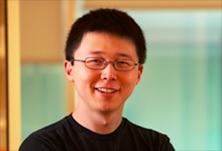Earlier this week, Editas Medicine announced with some fanfare that it had nailed down the IP backing up its work on CRISPR-Cas9, a potentially revolutionary new approach to gene editing with far-ranging therapeutic implications. If the DNA-splicing technology works as the pioneers claim it does, the startups in the field are in the opening stages of making some major breakthroughs.
 |
| Feng Zhang |
But Editas' timing was unusual. Nailing down IP rights in biotech is a priority--the first step in building a company. Editas was founded a year ago. But an in-depth article in the MIT Technology Review sheds considerable light on the behind-the-scenes scrambling going on as the principals behind a group of new biotech startups square off in a tussle over who controls what.
At the center of this dispute is scientist Feng Zhang, the Editas cofounder and Broad investigator who won a patent on his CRISPR work in April. But Jennifer Doudna, a structural biologist from Berkeley, was another Editas cofounder who has since split away and taken her pending patent with her, according to Technology Review's fascinating account. Doudna founded Caribou Bio, which in turn outlicensed the tech to Intellia, a startup launched just weeks ago by Atlas and pharma powerhouse Novartis. Emmanuelle Charpentier, who worked with Doudna on CRISPR, joined the camp at CRISPR Therapeutics in Switzerland, taking her stake in the same patent. CRISPR Therapeutics is backed by Versant.
 |
| Emmanuelle Charpentier |
Over the past few years venture groups have been enjoying a scientific renaissance of sorts that has spawned a multitude of new drug programs and biotechs--and legal scraps. Early-stage venture operations like Polaris, Third Rock and Flagship, which backed Editas, have been bankrolling technologies developed on campuses or in major research institutions, and Big Pharma has been close behind. That's been evident in another big tech/legal showdown between Juno Therapeutics in Seattle and Novartis ($NVS) on engineering CAR-T's, retooled T cells that can track down and kill cancer cells.
As a result of the breakthroughs in academia, the work of a few top scientists has become a treasure map in biotech. And there's no long wait for years and years of lab work to pay off. Harvard's George Church--who has a big lab devoted to CRISPR-Cas9--and Zhang published their work on the therapeutic implications for CRISPR-Cas9 in early 2013--less than two years ago. New companies were popping up within months of that--not waiting for the IP dust to settle.
 |
| Jennifer Doudna |
Scrapping over the rights to an emerging technology, particularly in a field that's about three years from the clinic, may well ultimately be less important than establishing control over what has yet to be learned.
"It's one important piece, but I don't really pay attention to patents," Zhang--who maintains he did the work independently--tells Technology Review about the brouhaha. "What the final form of this technology is that changes people's lives may be very different."
The lawyers are being called in now, though, to start the lengthy process of deciding who did what in the lab--and who really owns the rights to it.
- here's the article from MIT Technology Review